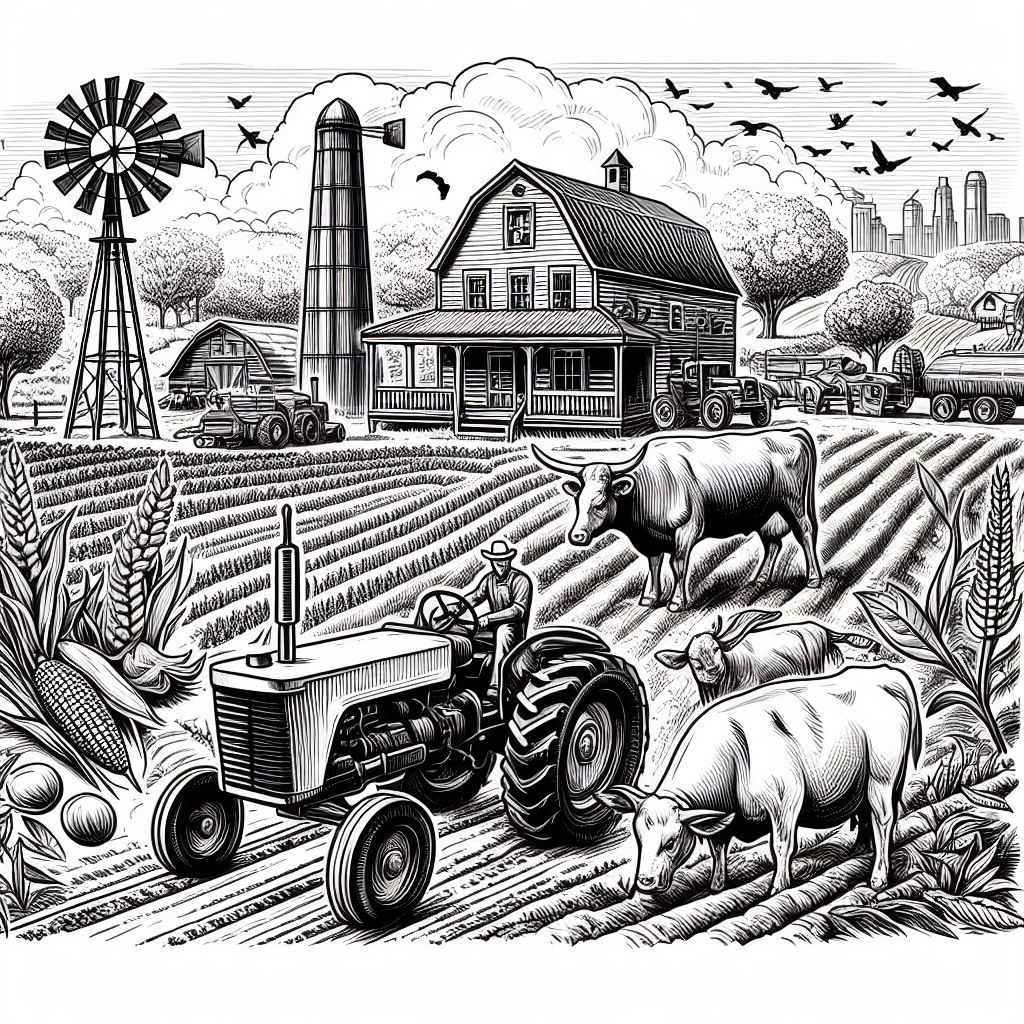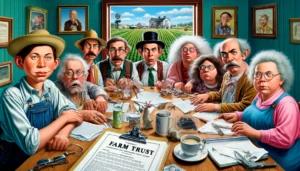
Contour Farming 2.jpg

Contour Farming
Definition:
Contour farming is a soil conservation practice that involves cultivating crops parallel to the natural contours of the land, rather than in straight rows up and down slopes. By following the contour lines, contour farming helps reduce soil erosion, minimize water runoff, and conserve soil moisture on sloping terrain. This practice is particularly effective in hilly or mountainous regions where soil erosion is a significant concern.
Practical Advice:
- Mapping Contour Lines: Begin by mapping contour lines using topographic maps, GPS technology, or on-site surveying methods. Identify the natural slope of the land and mark contour lines to guide the placement of crops and farm operations.
- Planting Along Contours: Plant crops along contour lines to create rows that run perpendicular to the slope rather than up and down the hill. This helps slow down water runoff, allowing it to infiltrate the soil and reduce erosion while maximizing water retention for plant growth.
Valuable Assistance:
- Implementing Conservation Practices: Combine contour farming with other soil conservation practices, such as cover cropping, mulching, and strip cropping, to enhance erosion control and soil health. Integrated conservation practices work synergistically to reduce soil erosion, improve water infiltration, and promote sustainable land management.
- Managing Water Flow: Manage water flow within the landscape to minimize erosion and maximize water retention. Construct water diversion structures, such as terraces or grassed waterways, to redirect runoff away from vulnerable areas and into storage or infiltration zones to reduce erosion risks.
Enlightening Details:
- Preventing Gully Erosion: Contour farming helps prevent gully erosion by reducing the velocity of water runoff and promoting even distribution across the landscape. By following the natural contours of the land, farmers can minimize concentrated flow paths and prevent the formation of gullies that can degrade soil and landscape integrity.
- Conserving Soil Moisture: Contour farming conserves soil moisture by reducing surface runoff and promoting water infiltration. By planting crops along contour lines, farmers can capture rainfall and snowmelt, allowing water to percolate into the soil and replenish groundwater reserves, thereby improving moisture availability for plant growth.
Actionable Suggestions:
- Adapting Farming Practices: Adapt farming practices to suit the topography and soil characteristics of the land. Utilize appropriate equipment and techniques for planting, cultivation, and harvesting crops on sloping terrain to minimize soil disturbance and erosion while maximizing productivity and profitability.
- Continuous Monitoring and Adaptation: Monitor the effectiveness of contour farming practices regularly and make adjustments as needed to address changing conditions or emerging challenges. Evaluate erosion rates, soil moisture levels, crop performance, and other indicators to refine management strategies and optimize conservation outcomes.
Conclusion:
Contour farming is a valuable soil conservation practice that helps mitigate erosion, conserve soil moisture, and promote sustainable agriculture on sloping terrain. By aligning crop cultivation with the natural contours of the land, farmers can minimize soil loss, improve water management, and maintain the long-term productivity and resilience of their farms.
Fall off the barn roof and busted your keister? Life on the farm or ranch can be tough on the bum. Need a break? Laugh it off at FarmerCowboy.com, the #1 farm humor site. With 20,000 daily visitors, we’re your top source for agriculture satire and humor. Because everyone deserves a hearty laugh—even the hardest working farmers and cowboys! Join us and turn those long days into fun tales at FarmerCowboy.com.

Originally posted 2017-05-20 09:16:22.
Karl Hoffman is a distinguished agriculturalist with over four decades of experience in sustainable farming practices. He holds a Ph.D. in Agronomy from Cornell University and has made significant contributions as a professor at Iowa State University. Hoffman’s groundbreaking research on integrated pest management and soil health has revolutionized modern agriculture. As a respected farm journalist, his column “Field Notes with Karl Hoffman” and his blog “The Modern Farmer” provide insightful, practical advice to a global audience. Hoffman’s work with the USDA and the United Nations FAO has enhanced food security worldwide. His awards include the USDA’s Distinguished Service Award and the World Food Prize, reflecting his profound impact on agriculture and sustainability.



